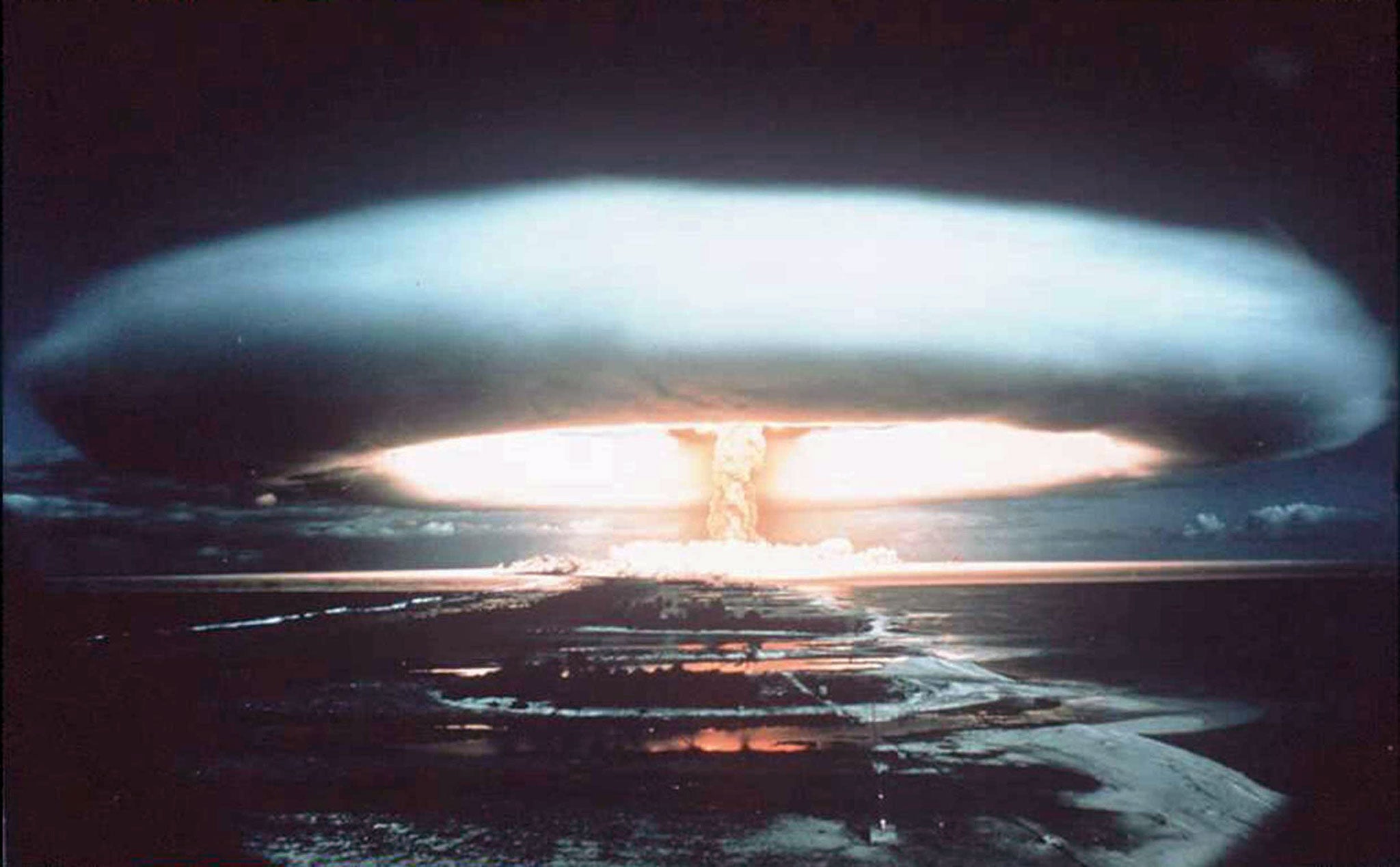South Pacific islands prepare to sue French government for $1billion over nuclear tests
Tests were conducted from mid-1960s and saw government approved detonated of nearly 200 nuclear tests off atolls in French Polynesia

Your support helps us to tell the story
From reproductive rights to climate change to Big Tech, The Independent is on the ground when the story is developing. Whether it's investigating the financials of Elon Musk's pro-Trump PAC or producing our latest documentary, 'The A Word', which shines a light on the American women fighting for reproductive rights, we know how important it is to parse out the facts from the messaging.
At such a critical moment in US history, we need reporters on the ground. Your donation allows us to keep sending journalists to speak to both sides of the story.
The Independent is trusted by Americans across the entire political spectrum. And unlike many other quality news outlets, we choose not to lock Americans out of our reporting and analysis with paywalls. We believe quality journalism should be available to everyone, paid for by those who can afford it.
Your support makes all the difference.The French Polynesia Assembly is preparing to ask Francois Holland’s government for nearly a billion dollars in compensation for damage caused to the islands by nuclear weapons tests.
Conservative anti-independence Tahoera’a Huiraatira party committee has apparently taken issue with the French testing regime that saw 210 nuclear tests conducted from 1966 to 1996 off secluded atolls in the south Pacific.
The committee, which is acting independently of Polynesian President Edouard Fritch, is asking for 930 million US dollars for environmental damage, according to daily Polynesian newspaper La Depeche de Tahiti.
In addition, the proposed resolution also seeks an additional 132 million for the continued occupation of the Fangataufa and Mururoa atolls.
France detonated its first thermonuclear weapon off the Fangataufa atoll in 1968, after ruling out other locations – such as the Sahara – and the decision was broadly accepted by the Polynesian public at the time.
Last year declassified French defence documents exposed that the islands had been hit with far more radiation than previously supposed. Tahiti - the most populated island - was exposed to 500 times more radiation than recommended.
In 2006 a French medical body found the increase of cancer on the islands were caused by nuclear testing. The French government only acknowledged veterans and survivors in 2010 that they would be legible for compensation - but warned the process would be long and complex thanks to the distribution of the islands.
Environmentally, the islands appear to have been badly affected by the testing. However, for years many scientists and researchers were refused entry to the islands and to this day much of the data on the proliferation of waste remains incomplete or unavailable.
In 1998 one report indicated that more than 3,200 tonnes of various types of radioactive waste had been poured into the Pacific ocean, sinking to depths of 1,000 metres off the coast of Mururoa and Hao island.
Marcel Tuihani, a protégé of the founder of the anti-independence Tahoera’a party Gaston Flosse, is leading the claim.
On Friday Mr Flosse was invited by the chairman of the meeting to work for the commission as a “qualified expert”.
The politician, who is affectionately referred to be in local media as the ‘Old Lion’, was convicted of corruption in 2006 and given a three-months suspended sentence during which time he neither resigned nor gave up his seat in the Polynesian senate. He was reelected to the Senate in 2008.
French Polynesia is an overseas collective of French Republic and is located south of Hawaii in the South Pacific Ocean. Among its 118 islands, 67 are inhabited. Tahiti is the most populous island and contains the capital Pape’ete.
Join our commenting forum
Join thought-provoking conversations, follow other Independent readers and see their replies
Comments